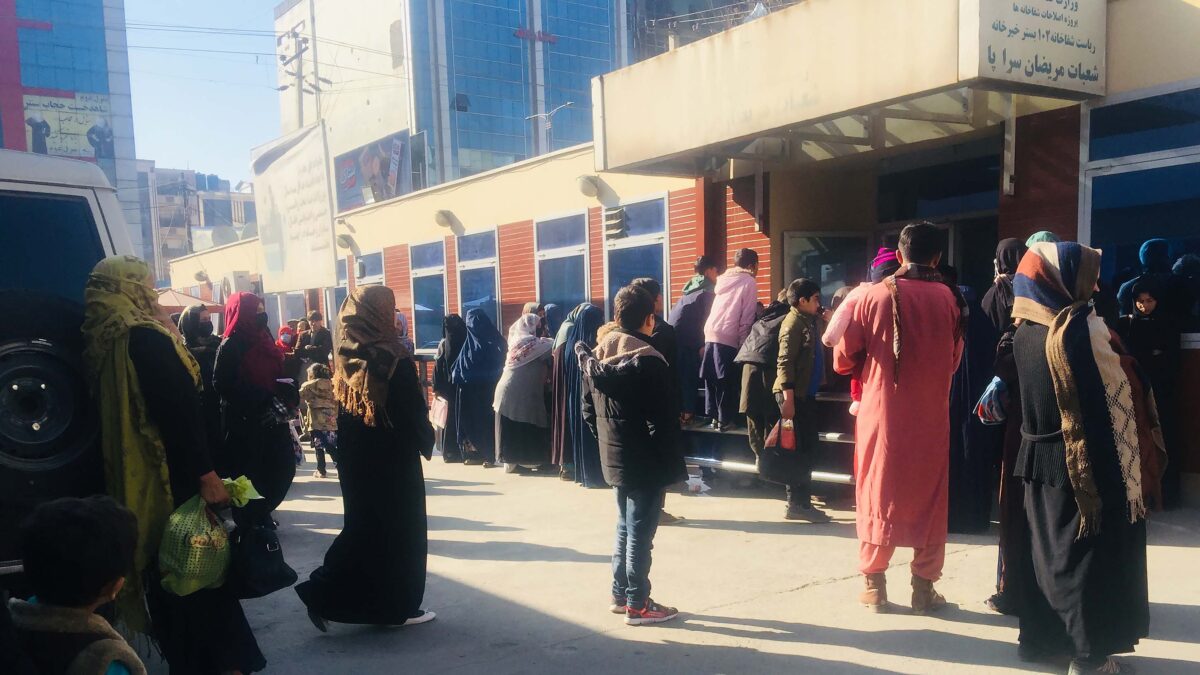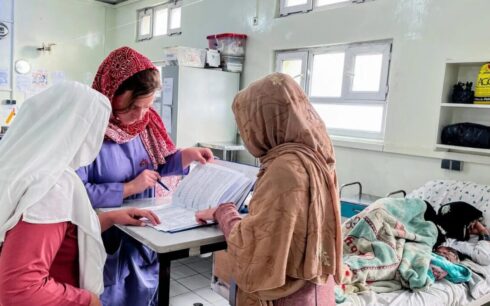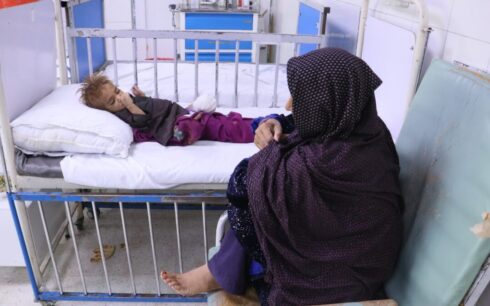Doctors have warned that respiratory diseases among children and the elderly, in particular, have increased sharply in Kabul as residents burn cheap fuel to heat their homes.
This has led to a drastic decrease in air quality in the capital as winter settles in.
Doctors have said the number of cases of seasonal diseases, particularly pneumonia and bronchitis has increased in Kabul as the weather deteriorates.
Farinullah, a physician who specializes in respiratory diseases, said that air pollution is the leading cause of respiratory problems, including lung diseases.
“The cold season causes pneumonia and respiratory diseases, and the disease spreads through breathing and enters the respiratory system and infects the lungs,” he said.
Farinullah stated that adults begin coughing after contracting respiratory diseases and that a chronic cough could be a sign of Tuberculosis (TB). He advised people with a persistent cough to seek medical help as a person with TB can die if they do not get treatment.
Kabul’s polluted air
Marwa, who took her child to a public hospital in Kabul, said her son has had pneumonia for two weeks and despite being given medication, he has not recovered.
Marwa said she is struggling financially and cannot heat her home; coupled with the cold and Kabul’s poor air quality, her child has not recovered.
She said she does not have the money to pay for private health care, which she says provides a better service to the people.
Ehsan Mohammadi, a Kabul driver, said that the air pollution in Kabul is increasing dramatically each day and he called on the Taliban authorities to take urgent steps to improve the air quality.
“The air, particularly at night, is so polluted and harmful, you can’t even imagine. Most of the time, it is not possible [to see far], the roads are not visible properly at night due to a lot of smoke,” the driver said.
Physicians said that children and the elderly are more vulnerable to air pollution than adults.
“Gasses and smoke spread from burning coal, wood, plastic tires, and other materials can be toxic and acidic, which interacts with air humidity to produce concentrated acids, and this can harm the health of humans, animals, and plants and cause serious breathing issues,” an environmental expert Rasoul Ramin said.
Experts estimate that at least three million people die due to air pollution every year across the world, of which 90 percent of the fatalities are recorded in developing countries.
In some countries, the number of people who die due to air pollution is more than the number of victims of traffic accidents.
Diseases such as asthma, bronchitis, pneumonia, heart attacks, and various respiratory infections and allergies are often caused by air pollution.





